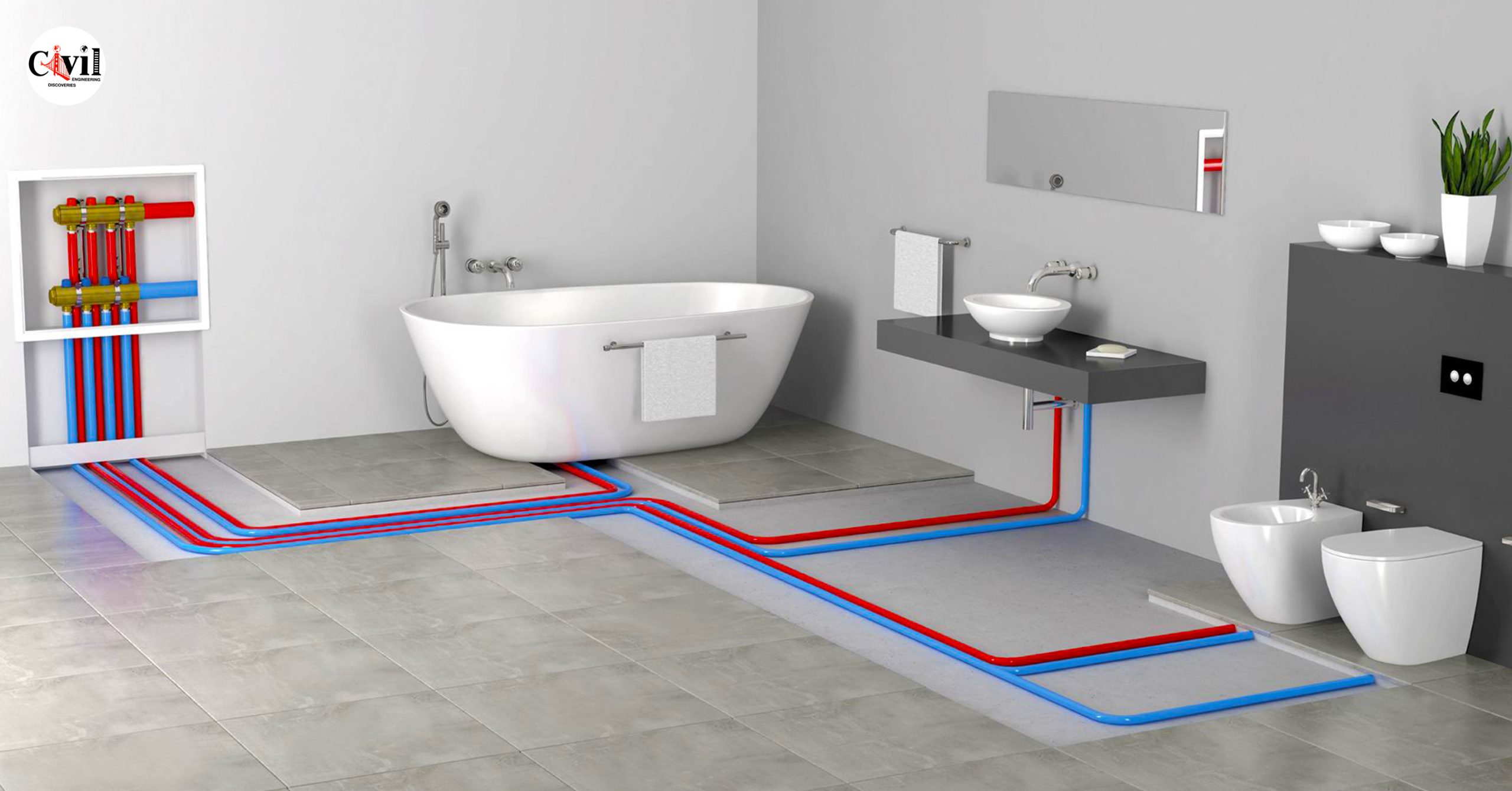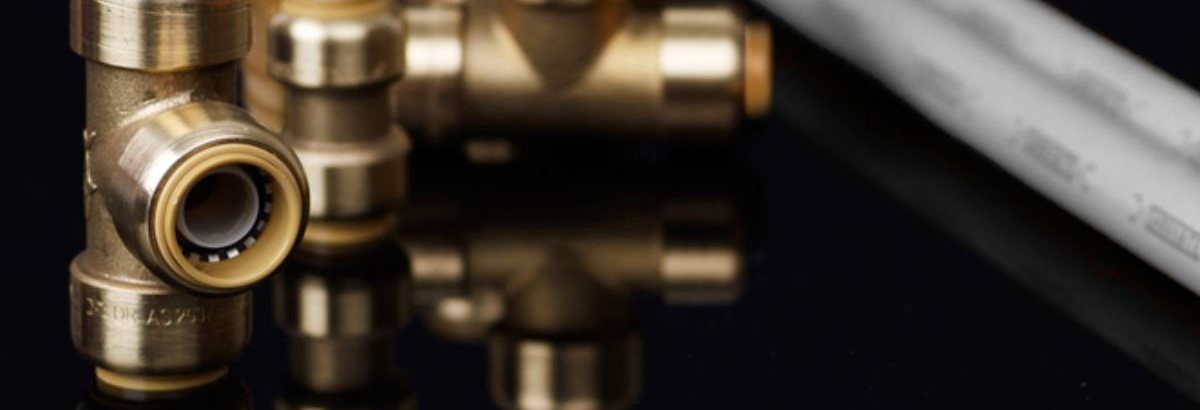How The Anatomy of Your House's Plumbing System Matters
How The Anatomy of Your House's Plumbing System Matters
Blog Article
What're your thoughts about Understanding Your Home's Plumbing Anatomy?

Recognizing how your home's pipes system works is important for every property owner. From supplying tidy water for drinking, cooking, and showering to safely getting rid of wastewater, a properly maintained plumbing system is critical for your family members's health and convenience. In this extensive overview, we'll discover the elaborate network that comprises your home's plumbing and deal ideas on maintenance, upgrades, and managing usual problems.
Introduction
Your home's pipes system is more than simply a network of pipelines; it's a complex system that guarantees you have accessibility to tidy water and reliable wastewater removal. Recognizing its parts and how they interact can help you protect against expensive repairs and make sure everything runs efficiently.
Basic Parts of a Plumbing System
Pipelines and Tubing
At the heart of your plumbing system are the pipes and tubes that carry water throughout your home. These can be constructed from various materials such as copper, PVC, or PEX, each with its benefits in regards to toughness and cost-effectiveness.
Fixtures: Sinks, Toilets, Showers, etc.
Components like sinks, commodes, showers, and bathtubs are where water is utilized in your home. Comprehending just how these fixtures attach to the plumbing system assists in diagnosing issues and intending upgrades.
Shutoffs and Shut-off Points
Shutoffs control the flow of water in your pipes system. Shut-off shutoffs are vital during emergency situations or when you require to make repair work, enabling you to separate parts of the system without disrupting water circulation to the whole home.
Water System
Main Water Line
The primary water line attaches your home to the municipal supply of water or an exclusive well. It's where water enters your home and is dispersed to different fixtures.
Water Meter and Stress Regulator
The water meter actions your water usage, while a stress regulator makes sure that water moves at a risk-free pressure throughout your home's pipes system, preventing damage to pipelines and fixtures.
Cold Water vs. Hot Water Lines
Recognizing the distinction in between cold water lines, which provide water directly from the primary, and hot water lines, which lug heated water from the hot water heater, aids in troubleshooting and preparing for upgrades.
Drain System
Drain Pipes Water Lines and Traps
Drain pipes bring wastewater away from sinks, showers, and commodes to the sewer or septic tank. Catches avoid drain gases from entering your home and also catch debris that might cause blockages.
Air flow Pipes
Air flow pipes enable air into the drain system, preventing suction that could slow down drainage and cause catches to empty. Appropriate air flow is vital for keeping the stability of your pipes system.
Relevance of Proper Drain
Making certain correct drain protects against back-ups and water damage. Regularly cleaning drains pipes and keeping traps can stop costly repair work and prolong the life of your pipes system.
Water Heating System
Kinds Of Water Heaters
Water heaters can be tankless or typical tank-style. Tankless heating units warmth water as needed, while tanks keep heated water for instant usage.
Upgrading Your Plumbing System
Factors for Updating
Updating to water-efficient fixtures or replacing old pipelines can boost water quality, lower water costs, and increase the value of your home.
Modern Pipes Technologies and Their Advantages
Discover technologies like clever leak detectors, water-saving toilets, and energy-efficient water heaters that can conserve cash and lower ecological impact.
Cost Considerations and ROI
Determine the in advance expenses versus long-term financial savings when thinking about plumbing upgrades. Lots of upgrades pay for themselves through decreased utility expenses and less fixings.
How Water Heaters Connect to the Plumbing System
Understanding exactly how water heaters link to both the cold water supply and warm water distribution lines helps in diagnosing problems like inadequate hot water or leaks.
Maintenance Tips for Water Heaters
On a regular basis purging your water heater to eliminate sediment, inspecting the temperature settings, and examining for leaks can extend its lifespan and boost power performance.
Usual Pipes Problems
Leaks and Their Causes
Leaks can occur due to aging pipes, loose fittings, or high water stress. Resolving leakages without delay prevents water damages and mold and mildew growth.
Clogs and Blockages
Obstructions in drains pipes and commodes are commonly caused by purging non-flushable products or a buildup of oil and hair. Making use of drain screens and being mindful of what drops your drains pipes can protect against blockages.
Indications of Plumbing Troubles to Expect
Low water pressure, slow drains pipes, foul odors, or unusually high water costs are indications of prospective plumbing troubles that must be dealt with promptly.
Pipes Upkeep Tips
Normal Assessments and Checks
Schedule yearly pipes evaluations to catch problems early. Search for signs of leaks, deterioration, or mineral accumulation in faucets and showerheads.
Do It Yourself Upkeep Tasks
Simple jobs like cleaning faucet aerators, looking for bathroom leaks making use of dye tablet computers, or protecting exposed pipes in cool environments can prevent significant plumbing concerns.
When to Call an Expert Plumber
Know when a pipes issue calls for expert expertise. Attempting intricate repair work without correct understanding can lead to even more damages and higher repair service costs.
Tips for Minimizing Water Usage
Basic habits like fixing leaks immediately, taking much shorter showers, and running full lots of washing and dishes can preserve water and lower your utility costs.
Eco-Friendly Plumbing Options
Take into consideration lasting plumbing products like bamboo for floor covering, which is durable and environmentally friendly, or recycled glass for kitchen counters.
Emergency Readiness
Steps to Take During a Pipes Emergency situation
Know where your shut-off shutoffs are located and exactly how to turn off the supply of water in case of a ruptured pipeline or major leakage.
Significance of Having Emergency Calls Handy
Keep call details for local plumbing technicians or emergency situation solutions conveniently available for quick action throughout a plumbing crisis.
Environmental Effect and Preservation
Water-Saving Components and Appliances
Setting up low-flow taps, showerheads, and commodes can significantly decrease water usage without giving up efficiency.
Do It Yourself Emergency Situation Fixes (When Applicable).
Short-term repairs like making use of duct tape to patch a dripping pipeline or positioning a bucket under a dripping faucet can lessen damages till an expert plumbing technician gets here.
Verdict.
Recognizing the anatomy of your home's plumbing system empowers you to keep it properly, conserving money and time on fixings. By adhering to regular maintenance routines and staying informed concerning modern-day pipes modern technologies, you can guarantee your pipes system runs successfully for many years to find.
The Anatomy of Your Home s Plumbing System
Understanding the anatomy of your home s plumbing system is essential for any homeowner. It not only helps in identifying potential issues but also facilitates effective communication with professionals when repairs or upgrades are needed. Your home s plumbing system is more than just pipes and faucets; it s a complex network that ensures the efficient and hygienic flow of water in and out of your house. In this blog, we ll dissect the crucial components of your home s plumbing system. For those in Antelope Valley, Brock Plumbing is your trusted partner for all your plumbing needs, ensuring your system functions smoothly and efficiently.
Water Supply System
Main Water Line: This is where your home s plumbing system begins. The main water line connects your home to the public water supply or a private well. Pipes and Shut-off Valves: Pipes distribute water throughout your home. Shut-off valves are crucial for controlling the flow of water and making repairs without shutting off the entire system. Drainage System
Drain Pipes: These pipes carry waste and water away from sinks, toilets, and showers. Vents: Vents allow sewer gases to escape and help maintain proper pressure in the drainage pipes, ensuring efficient flow of wastewater. Traps: Every fixture has a trap, a U-shaped pipe that holds water and prevents sewer gases from entering your home. The most common is the P-trap under sinks. Fixtures and Appliances
Fixtures and appliances are the most interacted with parts of your plumbing system. They include sinks, toilets, showers, dishwashers, and washing machines. Each fixture and appliance has its own supply and drainage connection, ensuring they receive clean water and can dispose of wastewater effectively.
Water Heating System
Your water heater is a crucial component, providing hot water to various fixtures and appliances in your home. It can be tank-based or tankless, with each type having its own set of advantages and maintenance requirements. Regular maintenance is essential to ensure efficient operation and extend the lifespan of the unit.
Sump Pump
In areas prone to flooding or with high water tables, a sump pump is an essential part of the plumbing system. It s installed in the lowest part of your basement or crawlspace and pumps out water that accumulates, preventing flooding and protecting your home from water damage.
Septic System
Homes that are not connected to a municipal sewer system have a septic system and an underground wastewater treatment structure. Understanding how to maintain your septic system is crucial to prevent backups, odors, and early system failure.
Conclusion
Your home s plumbing system is a complex and essential network, ensuring the efficient and hygienic flow of water in and out of your property. Understanding its key components helps in maintaining it properly and identifying issues before they escalate into major problems. For residents in Antelope Valley, Brock Plumbing is dedicated to providing top-notch services, ensuring that every part of your plumbing system is in perfect working order. Trust our team of professionals to handle all your plumbing needs, ensuring your home remains comfortable, safe, and well-maintained.
https://brockplumbinganddrains.com/blog/the-anatomy-of-your-homes-plumbing-system/

Hopefully you enjoyed reading our topic on Anatomy of a House: Understanding the Components. Thanks a lot for taking a few minutes to read through our piece of content. Appreciated our entry? Please quickly share it. Let somebody else discover it. Thanks a lot for being here. Revisit us soon.
Information Report this page